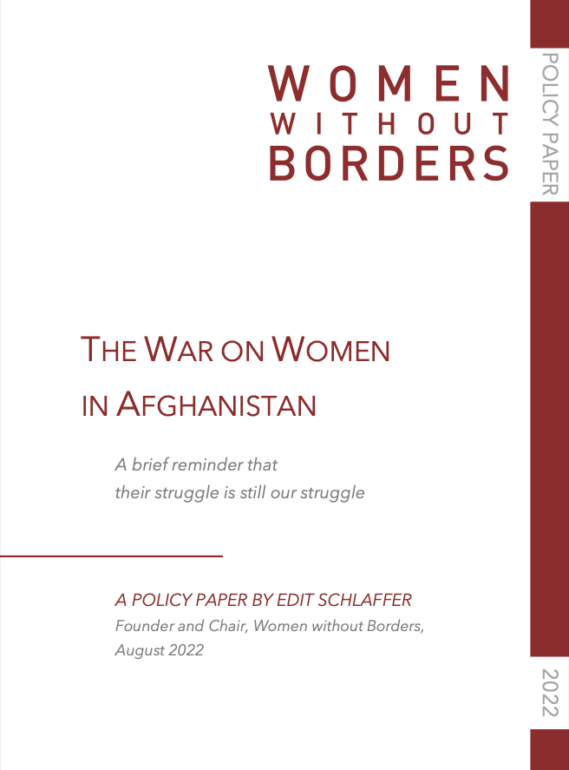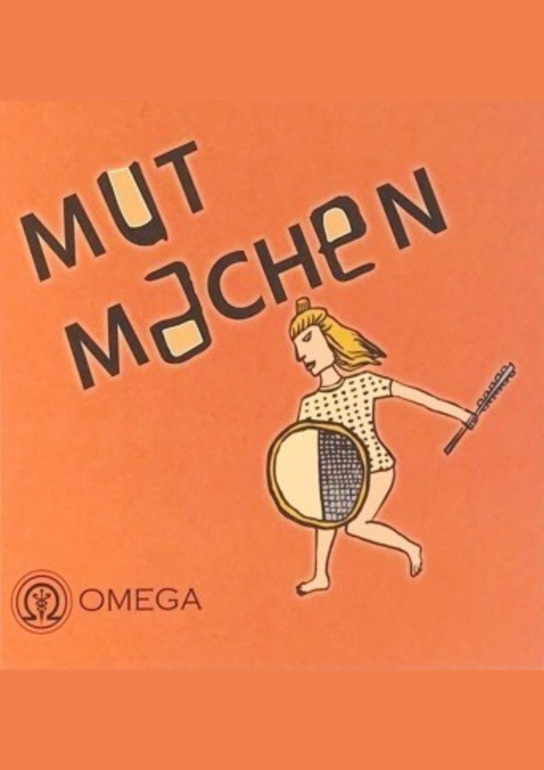Our first in the new policy paper series from our founder and Chair Edit Schlaffer, ‘The War on Women in Afghanistan: A brief reminder that their struggle is still our struggle’, looks back not only on the last year and the horrendous set-backs that the women of Afghanistan have had to endure since the fall of Kabul, but also reflects on the last 20 years. Afghanistan’s women have always been the face of the resistance. It’s high time that we engage with the women of Afghanistan on the ground and in exile and bring their voices to the negotiating tables.
What Went Wrong, Twenty Years On
A year has gone by since the fall of Kabul, which at the time marked the most recent in a long line of significant turning points in Afghanistan’s blood-stained history. How did we get here despite the billions that were poured into the military and humanitarian aid industries, leaving countless bodies in the wake? Death and destruction are present beyond the battlefields, affecting especially life in cities and villages across the country. What went wrong? The anniversary of the fall of Kabul has prompted long overdue reflection on the part of the media and the Western military elite alike. David Petraeus, former CIA director and commander of the US and NATO forces in Afghanistan, noted that the fall of Kabul was not an inevitability. In hindsight, he put it down to a “lack of strategic patience”. Petraeus identified the withdrawal of Western troops as a significant contributing factor to the ultimate defeat. It effectively quashed all hope and brought about a palpable sense of “psychological collapse”.
The international troops had hoped to put an end to this endless war but did so unprepared and hastily. In the meantime, the frontlines have shifted. War is still ongoing. A war against women.
Twenty years ago, the allies overthrew the first Taliban regime. They were ousted––as the collective narrative went—for encroaching upon women’s rights. Defending the human rights of women and guaranteeing girls’ access to education were worth the sacrifices, as the narrative went.
Let us remember the turning point brought about by 9/11, which initiated the war on terror. Women indeed became a central tenant of the PR strategy. And women across Afghanistan went along with the momentum, embracing this opening moment: they went to school and university, demanded women’s inclusion in political assemblies. Women in Afghanistan fought hard to become visible and heard in public. Freedom of movement was a daily triumph and a rejection of the old order.
Afghanistan is a tribal society with a hierarchical and repressive social order that leaves little room to the individual—least of all a woman. The elder rule the young with an iron fist. They mobilise tradition and religious decrees to justify their intimidation tactics and ritualise violence. There is no space for discussion—least of all for women. When the social order was challenged following the first Taliban era, the structures that had upheld Afghan patriarchy and its rulers’ reign of terror came into view. The glue had been domestic violence, gender discrimination, and violent misogyny that was most evident in the murder of girls and the selling off of daughters as brides. These are all expressions of enduring gender inequality, to put it lightly.
Read the entire policy paper here.



